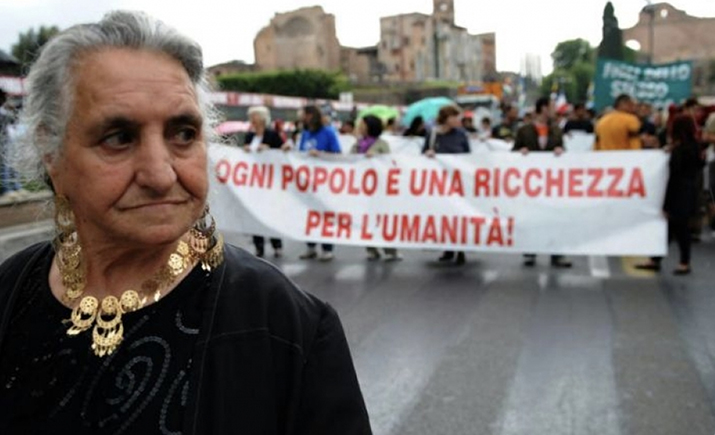HAPPENING AT THE COUNCIL OF EUROPE
INTERNATIONAL ROMA DAY
A community that is fully aware of its history and culture is more likely to look at the present and the future with confidence», stated Marija Pejčinović Burić, Secretary General of the Council of Europe, on the occasion of International Roma Day.
The history of the Roma people is the story of a still open wound: hundreds of thousands were victims of the fascist forces’ brutality, executed from the Baltic to the Balkans. In Germany, only a few thousand Sinti and Roma survived the Holocaust and the concentration camps, the so-called Zigeunerlager (lagers meant only for Roma families), where they were exterminated or lost their lives because of the deplorable living conditions. Yet the mass killing of Roma people was not even raised at the Nuremberg trials.
The Council of Europe organized, in this framework, an online conference – «Roma Youth: Together for Emancipation and Empowerment, The Role of history in the participation and inclusion of Roma young people» – whose aim, as ambitious as it is essential, was to reawaken a collective memory and bring to light a past that must not be forgotten.
Indeed, teaching Roma and Travellers history as well as Roma Holocaust Remembrance are priorities of the current Council of Europe Strategic Action Plan for Roma and Travellers Inclusion.
Sadly, the problem of collective stigmatisation of Roma and Travellers is more actual than ever, affecting not only adults, who have to face discrimination in the job market, but also children, who are often segregated and bullied in schools.
Furthermore, the current severe health emergency has exacerbated their condition of segregation. Indeed, distance learning measures have excluded Roma and Travellers children from school due to lack of internet and computer access. Moreover, in many cases, Roma families live in slums, while thousands of European Roma remain still today stateless, and many lack personal identity papers to prove who they are.
The brutal history of the Roma massacre should not leave echoes of discrimination, but should nourish messages of inclusion, hope and equality, in order to firmly fight prejudicial generalisations and hate speech.
«As we celebrate International Roma Day, let us commit ourselves to acknowledging history and addressing current problems. In doing both, we can look forward to a brighter future for Europe’s Roma and Travellers and thus for Europe as a whole», concluded, with a message of hope, the Secretary General.
The teaching of the history and the commemoration of the victims are the priorities of the Strategic Action Plan of the Council of Europe on the integration of Rom and Camminanti nomads
Giuseppe Zaffuto, spokesperson for the Council of Europe in Italy







